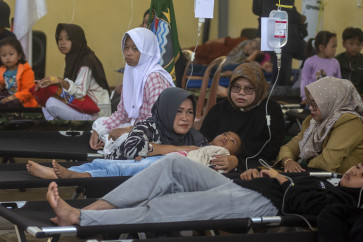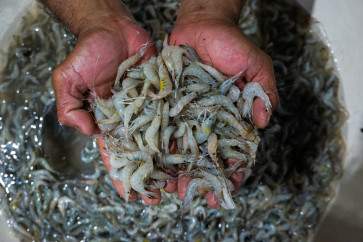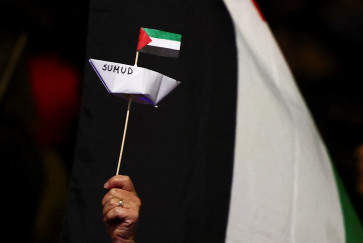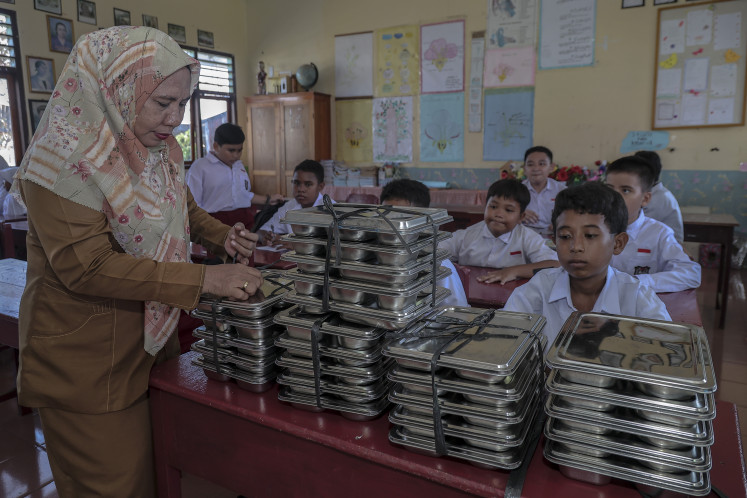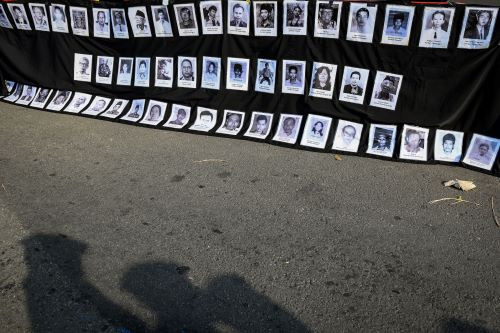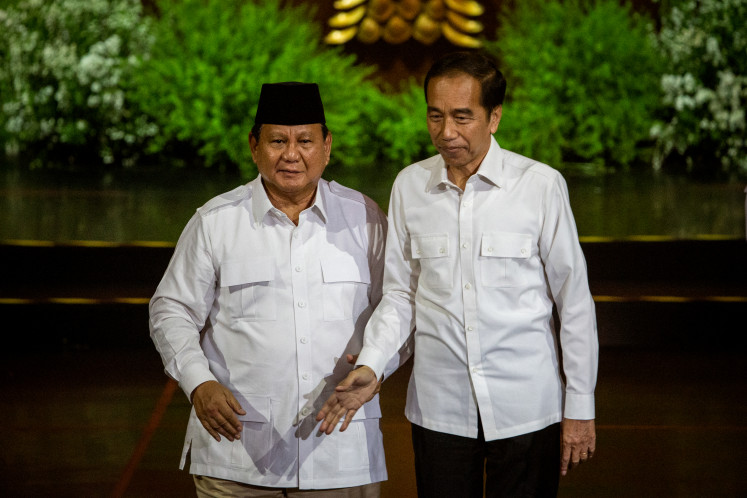Popular Reads
Top Results
Can't find what you're looking for?
View all search resultsPopular Reads
Top Results
Can't find what you're looking for?
View all search resultsBridging the gay-straight divide in pluralistic Indonesia
In a country where mainstream religions condemn homosexuality as ungodly, many have taken up a position at either extreme of the spectrum but few have actually attempted to bridge the gap
Change text size
Gift Premium Articles
to Anyone
In a country where mainstream religions condemn homosexuality as ungodly, many have taken up a position at either extreme of the spectrum but few have actually attempted to bridge the gap.
Mardian Kuncoro, homosexual and proud of it, tackles discrimination against gay Indonesians by actively contributing to society.
"People in this country have terrible ideas about homosexuals, which I think is because they don't know any better," the 27-year-old, better known as Ardi, said on Friday.
In 2003, Ardi and his two partners set up a clothing shop in Jakarta with the simple aim of making an honest living and sharing it with the community.
"Our plan was simple. One shop would at least need one attendant. As simple as it may seem, we were creating jobs," he said.
Their business grew and they established a company. Now, they own a caf*, a hairdressing salon, a boutique and four shops, employing a total of 15 people.
Ardi, who has lived in Jakarta all his life, has long realized that good behavior is the only way to communicate to people that a person's sexual preferences do not determine their character.
From 1999 to 2003, Ardi studied at the School of Propagation and Communications at Syarif Hidayatullah State Institute for Islamic Studies (now known as the State Islamic University). During this time, he was actively involved in various campus organizations.
"I also held discussions about homosexuality in Islam and in the Koran. At first my friends were uncomfortable with my opinions and heated debates would often arise.
"But in the end, I managed to get the message across and they came to understand," Ardi said.
But, Ardi said, he was not a gay man on a mission when he decided to enroll in an Islamic university.
"I always wanted to be close to the Almighty. During my teenage years, when I was questioning my sexual identity, I turned to God for an answer. I can say now that my prayers were answered," he said.
For Ardi, the mainstream religions were being unfair in their teachings and convictions against homosexuals.
"Who are we humans to judge and condemn other humans over their sexual preferences? Let's leave it to (God) above, who has the absolute authority over us," Ardi said.
In a discussion earlier this year, several mainstream religious organizations, including those representing Muslims and Christians, claimed that homosexuality was a psychological disorder and unnatural behavior.
Ade Kusumaningrum, an open lesbian, holds the same opinion as Ardi.
Ade, a film publicist, said that even though the country is now more free, it had become more repressive against sexual minorities.
"Just look at some bylaws in several regions. They actually criminalize homosexuality," she said.
In recent years, there have been several reports of violence and discrimination against homosexuals by radical groups and local administrations.
In 2002, the South Sulawesi administration became the first to pass an anti-prostitution bylaw that criminalizes homosexuality. Two years later, the Palembang administration passed a similar bylaw.
But, Ade said, the reform movement had allowed greater freedom of information, which benefits younger generations.
"Many lesbians in my age group or older were -- and some are still -- secretive about their sexual identity; it was a hard time for us back then to come out to our family, and sometimes it is already too late to mention it," she said.
Among the benefits for younger people she identified were the Internet and media, which help young people by giving them more knowledge about their sexual identity and faster access to answers on their questions about sexual preferences.
"But the main question remains. They always ask themselves whether they can live as lesbians and face their families, friends and society in Indonesia," she said.
Like Ardi, Ade said self-acceptance and self-actualization were important aspects for homosexuals in gaining respect from others.
"I always tell my clients that I'm a lesbian and I ask them whether they have a problem with that.
"It would be fine by me if they did and wanted to end the deal, but so far that has never happened. People know me from my work," Ade said.


